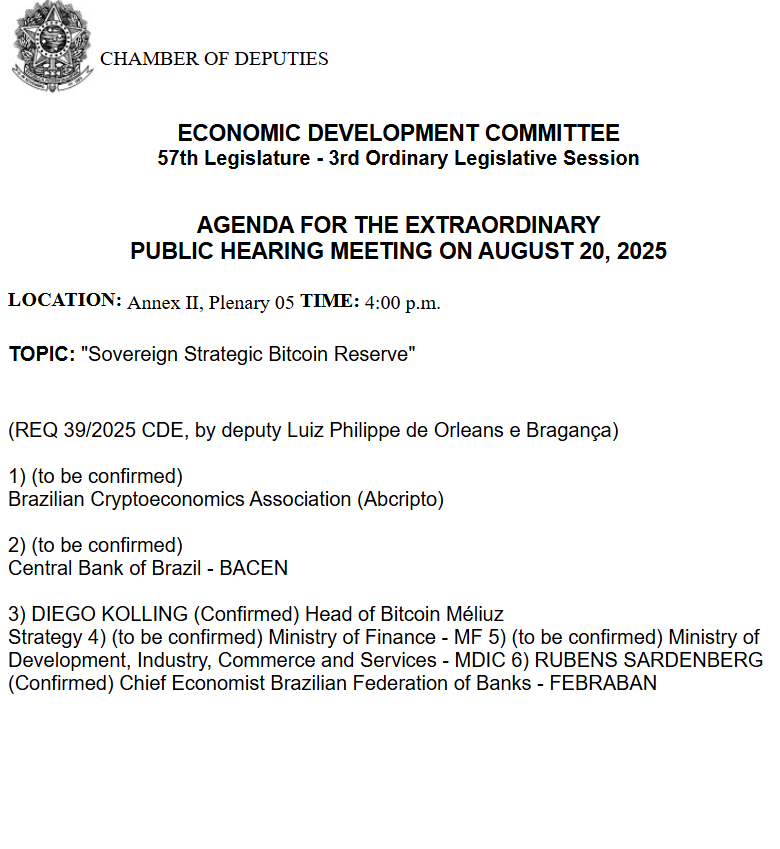Key Takeaways
- Brazil’s lower house will hold its first hearing on a national Bitcoin reserve on August 20, 2025.
- Bill 4501/2024 proposes Brazil diversify its assets with Bitcoin and other digital assets.
Share this article
Brazil’s Chamber of Deputies, the lower house of Brazil’s National Congress, has scheduled its first public hearing to discuss the creation of a Strategic Sovereign Bitcoin Reserve for August 20, 2025, according to an official agenda from the Economic Development Committee (CDE).
The hearing will explore the possibility of Brazil creating a national Bitcoin reserve through Bill 4501/2024. It was requested by Federal Deputy Luiz Philippe de Orleans e Bragança when the bill reached the CDE in June.


Diego Kolling, Head of Bitcoin Strategy at Méliuz, and Rubens Sardenberg from FEBRABAN have confirmed their participation in the hearing. The Economic Development Commission is awaiting confirmation from other invitees, including representatives from the Central Bank of Brazil, Ministry of Finance, and Ministry of Development, Industry, Commerce and Services.
The bill, introduced by Federal Deputy Eros Biondini last November, proposes the establishment of a Sovereign Strategic Bitcoin Reserve (RESBit), enabling the federal government to gradually acquire Bitcoin as part of its official foreign assets portfolio.
Under the bill, the Central Bank and Ministry of Finance would oversee custody, risk management, and reporting. RESBit holdings would be capped at 5% of Brazil’s international reserves and stored using a “cold wallet” infrastructure in compliance with global standards.
In addition to reserve diversification, the proposal frames Bitcoin as a macroeconomic shield and a foundation for accelerating domestic blockchain adoption. It also outlines measures to integrate crypto and distributed ledger education into Brazil’s academic and innovation ecosystems, including startup incentives and public-private partnerships.
The reserve could also serve as backing for Brazil’s central bank’s digital currency, Drex.
Officials managing the reserve would face criminal and administrative penalties for mismanagement. If passed, the executive branch would have 180 days to regulate the program.
If the bill passes the Chamber of Deputies, it heads to the Senate for committee review and a floor vote. If approved without changes, it goes directly to the President. If amended, it returns to the lower house for final approval
The hearing was first reported by Livecoins.
Share this article
